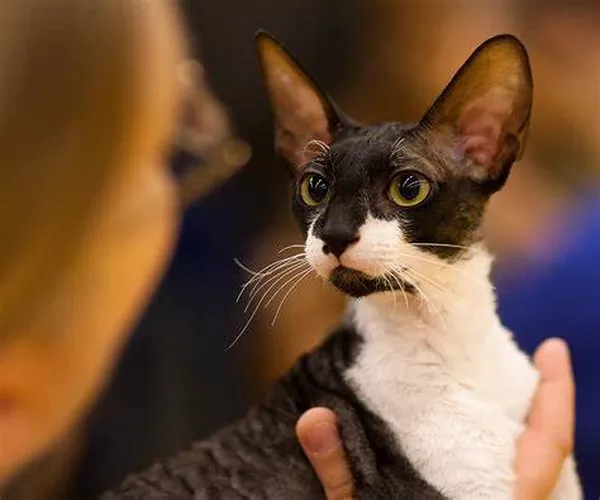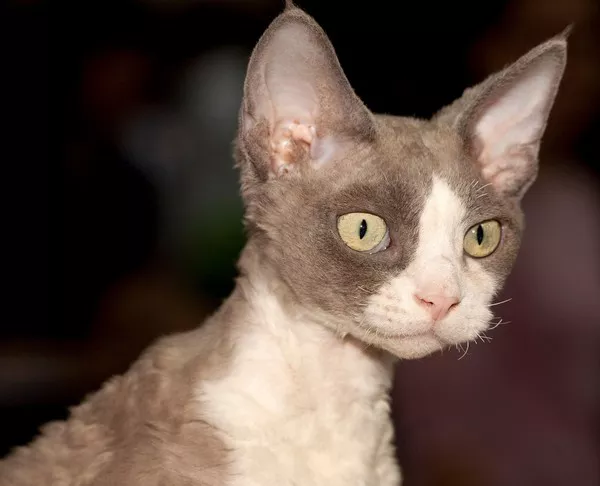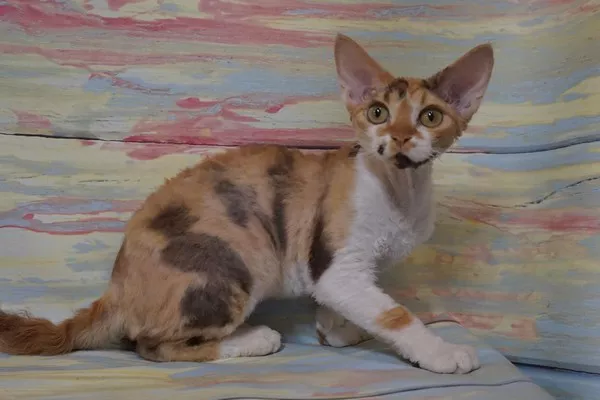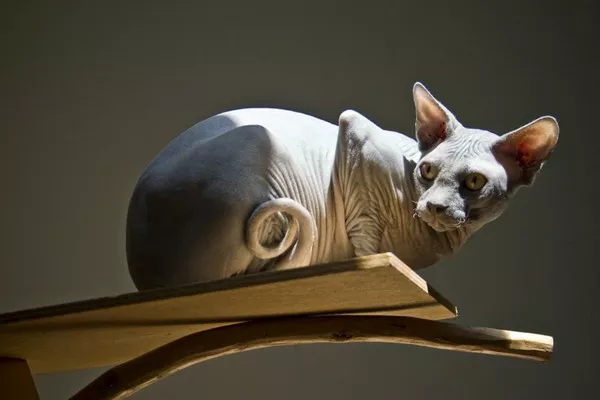Devon Rex cats are known for their unique appearance, playful demeanor, and affectionate nature. These intelligent and curious felines often form strong bonds with their human companions, but like all pets, they can exhibit a range of behaviors, including jealousy. In this article, we’ll delve into the world of Devon Rex cats, exploring their behavior and whether they are prone to feelings of jealousy.
1. Introduction to Devon Rex Cats: A Distinctive Breed
Before we explore the topic of jealousy in Devon Rex cats, let’s take a moment to introduce this distinctive breed and its characteristics.
1.1. Unique Appearance
Devon Rex cats are easily recognizable by their distinctive appearance, which includes large ears, short curly fur, and slender bodies. Their pixie-like faces and mischievous expressions add to their charm and appeal.
1.2. Playful and Energetic
Devon Rex cats are known for their playful and energetic nature. They love to engage in interactive play, chase toys, and explore their surroundings with curiosity and enthusiasm.
1.3. Affectionate Companions
Despite their active personalities, Devon Rex cats are also affectionate companions who enjoy spending time with their human family members. They often seek out attention, cuddles, and lap time, forming strong bonds with their owners.
2. Understanding Jealousy in Cats: Can Devon Rex Cats Get Jealous?
Jealousy is a complex emotion that can manifest in various ways in animals, including cats. While cats may not experience jealousy in the same way humans do, they can exhibit behaviors that suggest they may feel threatened or insecure in certain situations.
2.1. Signs of Jealousy in Cats
Some common signs of jealousy in cats may include:
1. Aggression or hostility towards other pets or individuals receiving attention.
2. Vocalization, such as meowing or hissing, to gain attention or express displeasure.
3. Attention-seeking behaviors, such as rubbing against their owner or interfering with interactions between their owner and another individual.
2.2. Factors Influencing Jealousy
Several factors can influence feelings of jealousy in cats, including:
1. Changes in routine or environment, such as the introduction of a new pet or family member.
2. Competition for resources, such as food, water, or attention from their owner.
3. Past experiences or trauma that may contribute to feelings of insecurity or anxiety.
2.3. Individual Differences
It’s essential to recognize that each cat is unique, and their behavior may vary based on their personality, past experiences, and environment. While some cats may exhibit clear signs of jealousy, others may not display these behaviors at all.
3. Jealousy in Devon Rex Cats: Insights and Observations
Now that we have a better understanding of jealousy in cats, let’s explore whether Devon Rex cats are prone to feelings of jealousy based on insights and observations from owners and experts.
3.1. Affectionate Nature
Devon Rex cats are known for their affectionate and social personalities, often forming strong bonds with their owners. While they may enjoy having their owner’s undivided attention, they typically get along well with other pets and individuals in the household.
3.2. Playful Demeanor
Due to their playful and energetic nature, Devon Rex cats may be less likely to exhibit behaviors associated with jealousy, as they are often focused on engaging in activities and exploring their surroundings.
3.3. Adaptability
Devon Rex cats are known for their adaptability and ability to adjust to changes in their environment. This adaptability may help them cope with situations that could potentially trigger feelings of jealousy, such as the introduction of a new pet or family member.
4. Tips for Managing Jealousy in Cats: Ensuring Harmony in the Home
While Devon Rex cats may not be prone to feelings of jealousy to the same extent as other breeds, it’s essential to create a harmonious environment where all pets feel secure and valued. Here are some tips for managing jealousy in cats:
4.1. Provide Adequate Attention and Affection
Ensure that each pet receives ample attention, affection, and one-on-one time with their owner. This can help prevent feelings of jealousy and promote positive relationships between pets and family members.
4.2. Maintain Consistency and Routine
Maintain a consistent routine and environment to minimize stress and anxiety in pets. Avoid sudden changes or disruptions that could potentially trigger feelings of insecurity or competition among pets.
4.3. Address Behavioral Issues Promptly
If you notice signs of jealousy or aggression in your pets, address the issue promptly and seek guidance from a veterinarian or animal behaviorist if needed. Positive reinforcement, training, and behavior modification techniques can help address underlying issues and promote harmony in the home.
5. Conclusion: Nurturing Healthy Relationships with Devon Rex Cats
In conclusion, while Devon Rex cats are known for their affectionate nature and playful demeanor, they may not be prone to feelings of jealousy to the same extent as other breeds. However, it’s essential to be mindful of individual differences and provide a supportive and harmonious environment where all pets feel valued and secure. By understanding the unique needs and behaviors of Devon Rex cats, owners can nurture healthy relationships and foster a strong bond with their feline companions.



























